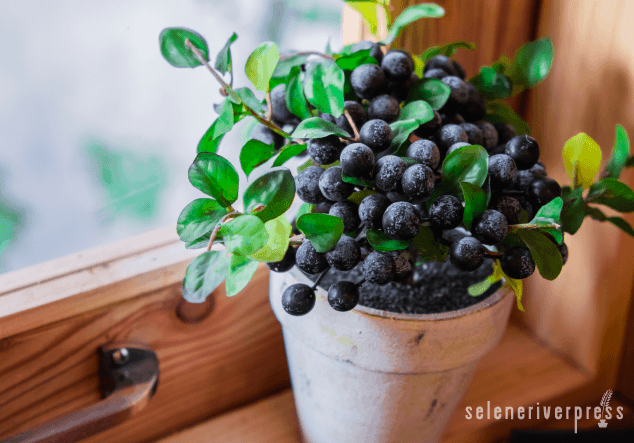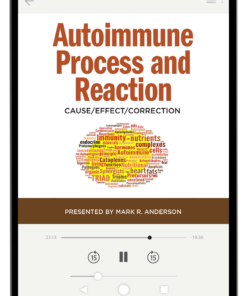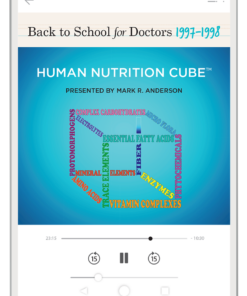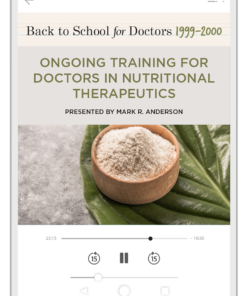Editor’s Note: The antioxidant theory has been in our collective face for way too long. It’s a theory that’s never been proven. In fact, it’s been disproven. Yet it remains an urban legend—and it continues to do harm. Read on to learn everything you need to know about vitamins and antioxidants from author Mark Anderson. Once you see for yourself how they function, you’ll come to the same inevitable conclusion: antioxidants cannot possibly have a nutritive effect on the body.
- A vitamin is a biochemical substance from food that is essential for human/animal life. The functional forms and various complexities of vitamins can differ according to animal species.
- Vitamins from food do not contribute to carcinogenesis or impair immune function.
- An antioxidant is a substance made by plants that protect phytonutrient components from oxidation during plant growth and metabolism.
- Plants (the green portion) create oxygen as a toxic by-product through the complex process of photosynthesis (converting light energy to chemical energy) and thus need protection against oxidation.
- Oxygen is toxic to plants while essential to animals. Plants expel oxygen and create antioxidants for self-protection.
- Oxygen, which is made by plants, is the most important nutrient for humans and animals on Earth. Without oxygen all such life forms—terrestrial and aquatic—would be extinguished within minutes and there would be no water.
- During routine metabolism human/animal cells, utilizing oxygen, generate reactive oxygen species (ROS), commonly called free radicals. This is normal.
- ROS are crucial in the destruction of pathogens and both precancerous and cancer cells in the body.
- Exogenous antioxidants (from outside of the body) inhibit or quench ROS reactions in the body.
- Cells do not require exogenous antioxidants to regulate ROS. Internally, all cells contain enzymes that control ROS (superoxide dismutase, catalase, glutathione peroxidise, and others).
- Exogenous antioxidants inhibit the body’s ability to destroy precancerous and cancer cells by suppressing apoptosis, which is an ROS-dependent process.
- Both ROS and certain vitamins cooperate in killing pathogens.
- Exogenous antioxidants suppress the ability of the immune system to destroy pathogenic organisms.
- Neutrophils destroy pathogens through secretion of ROS during phagocytosis
- Antioxidants suppress the generation and action of ROS during phagocytosis.
- Higher antioxidant levels in plants correlate to higher plant concentrations of phytonutrients. Antioxidants are useful biomarkers of the presence of phytonutrients in a plant.
- Unlike exogenous antioxidants, vitamins and phytonutrients do not contribute to carcinogenesis or impaired immune function.
- Antioxidants are not vitamins or phytonutrients. They are simply protectors of phytonutrients in plants.
- Antioxidants are efficiently eliminated from the human body via urine. Essential nutrients are retained and utilized within the body.
- Substances that enter the body and are swiftly eliminated are called “xenobiotics.” Antioxidants transit the body within minutes to hours.
- Essential nutrients remain in the body and either combine with other substances (e.g., as amino acids combine to form proteins), become part of enzyme and coenzyme systems, or become part of the body’s physical structure or biochemistry, such as the nutrient precursors of hormones.
Glossary of Terms
Apoptosis: programmed cell death by disintegration of cells into membrane-bound particles that are eliminated by phagocytosis. It is a core mechanism for the death of precancerous and cancer cells.
Neutrophil cell: an especially abundant type of leukocyte (phagocytic white blood cell) that is highly destructive of microorganisms.
Phagocytosis: the engulfing and ingestion of bacteria or other foreign bodies by phagocytes.
Xenobiotic: a chemical or substance that is foreign to an organism or biological system.
Photo from iStock/Grizzly13





